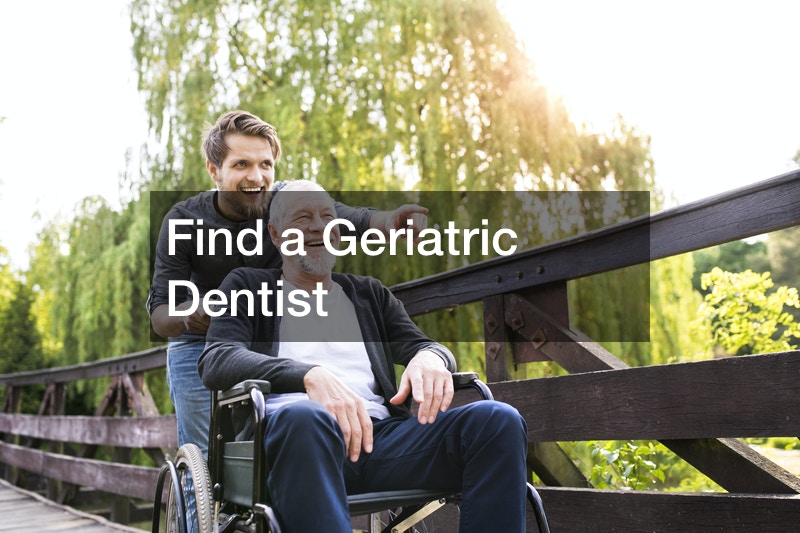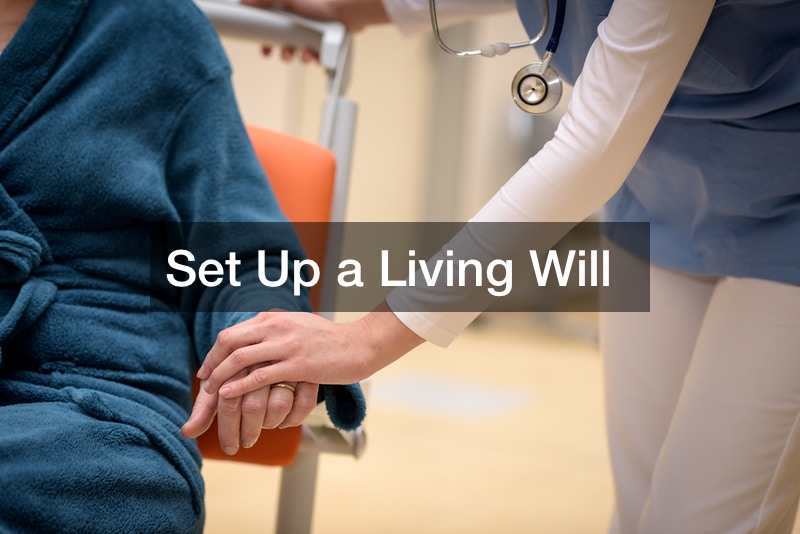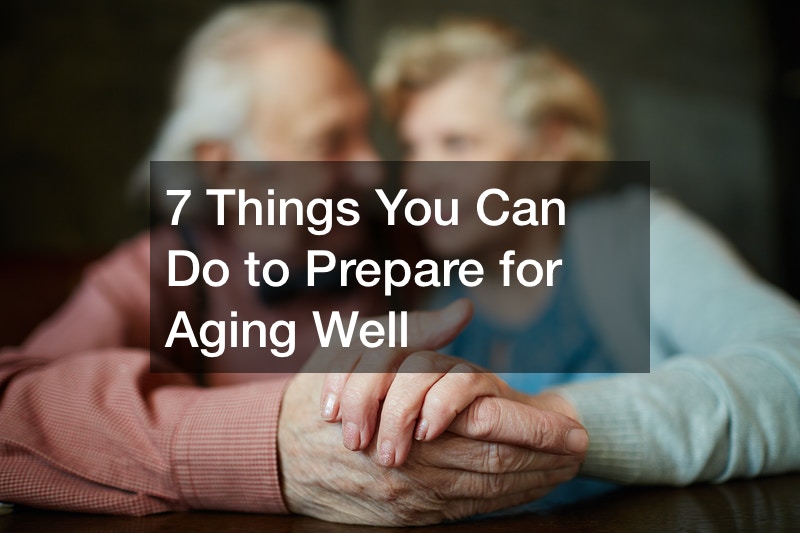
The thing about aging is that it’s sneaky and it starts small. You might have realized that hard liquor gives you a massive stomach ache, so you started drinking wine only. Perhaps you’ve cut down on how much yard work you do since your shoulders and back are starting to give you pain. Or maybe, just maybe, those few grey hairs you noticed have suddenly become full-on locks instead of strands.
The saying goes that you’re only as old as you feel. Even if you don’t think of yourself as an aging person, the fact is, your body is telling you otherwise. This doesn’t need to mean that you plunk yourself in the rocking chair and spend your days wasting away. On the contrary, there is something to be said about aging gracefully. While you needn’t define yourself as an old person, it is important that you acknowledge that you should be making preparations. You and the ones you love want you to live for as long as possible, and there are some methods that are especially helpful in achieving that goal.
1. Update Your Health Insurance Plan

If you’re currently employed, ask your human resources person at work about your health insurance. Make an appointment to go over it line by line and discuss options that might work better for you. During the open enrollment season, it’s easy to check the box for your provider services stating that you want everything to remain the same as last year. However, as the years roll on, it’s very likely that your needs have changed and that your old insurance plan no longer works for you.
Some tips for updating your insurance plan might include:
- Crunching numbers and looking at what you can really afford. Health insurance is not a cheap investment, but it’s one that is worth having in case something happens to you. Take a look at your finances versus what packages are available, and settle on a budget that is a comfortable price for you.
- Removing any dependants that no longer live with you. This can mean children who have moved out, an ex-spouse, or any others that you should no longer be paying for. This is a great way to save money that you mightn’t have realized that you were still spending.
- Weeding out the services that you no longer need or use. It’s likely that you and your partner no longer need to worry about maternity leave, for example, but items like hospice services suddenly carry a new weight to them. As you discuss these options with your HR person, start making a list of what your new needs are. This way, between the two of you, you can find a new plan that better suits you and your current family dynamic.
If you have private health insurance, the process is a little bit different. Since you don’t have a human resources person to help you, contact your insurance agent and discuss options with them instead. Most agents are happy to sit down and have a conversation with clients about what their needs are; updating plans and getting you what you want is literally their job!
Have you ever considered looking into the American Association of Retired Persons (AARP)? Don’t make that face! AARP is offered to anybody age 50 or older, and it is loaded with benefits. Why let your pride make you miss out on perks like:
- Insurance packages, including medical, dental, and vision. If nothing else, isn’t it worth comparing prices to see if you can get a better deal through AARP? Contact an agent to see what discounts and specials are offered to you.
- Ancestry tracking. Seriously! AARP has teamed up with Ancestry.com to help you find out what you’re made of. It offers members a 30% discount to sign up, and if you’re an existing member, you automatically will get the discount for every recurring subscription.
- Discounts on shopping, entertainment, hotels, and travel. Bet you didn’t know that! AARP’s website is full of big-name restaurants, stores, and more that give members discounts on their services. These can help you to save big on your next trip, from booking a hotel to wining and dining every night.
Keeping your health insurance package geared towards your current needs is a practical thing to do. The years have gone by and now it’s time to think about your health in terms of an aging person, not as a young family-oriented individual. It’s oddly freeing to cut down the deadwood and only keeping the items that apply to you and your partner now. You’ve got a less complex plan, you’re paying less money, and now you have a refresher on what is and isn’t covered.
2. Consider Housing Options

If you are one of those people who has been lucky enough to raise a family in a “forever house,” then you and your partner likely still live there. It’s been a fantastic place for the kids to grow up, for the dogs to run and bark, and for that tomato garden that has been hornworm free since ‘03! You and the family have made some beautiful memories there, and you will all always cherish what you’ve built inside of that house.
Now that the kids have grown and moved out, you have fewer pets, and it’s just you and your partner, things have changed. Whereas you might have needed the 2,000 square feet and half-acre of land when you bought it, the house suddenly seems altogether too big for you nowadays. Besides, the two of you don’t even use the extra bedrooms anymore, and it’s just extra carpet to vacuum.
As an aging couple, the most logical thing to do might be to contact a realtor and think about selling a house. As much as you love the place where your children grew up, it is no longer fitting for you. If you slipped and fell, how quickly could you summon help? Are there staircases that you must worry about? Think as someone who is aging, not as a young parent worried about their toddlers.
It will be sad no matter what, that is inevitable. Say goodbye to your house and thank it for sheltering you and your loved ones all these years. Fill it with positivity and joy so that, when the next family moves in, they can feel the good vibes radiating from those same walls that you once called home.
3. Find a Geriatric Dentist

Don’t let the word “geriatric” wound your pride, friend. Remember that you qualify for the senior discount at McDonald’s as young as age 55. A geriatric dentist is not exclusively a dentist for the elderly; it is someone who knows how to handle aging teeth better than a general dentist. You would take your child to a pediatric dentist, right? The only difference is that you’re on the other end of the spectrum.
You are already well aware that aging teeth are more brittle and likely to break. A geriatric dentist will explain best how to deal with that, what products to use and avoid, and even fit you for caps or dentures if need be. They can also write prescriptions and referrals that general dentists might be less familiar with, thus giving you the best possible care in the meantime.
4. Get Your Hearing Checked Regularly
Anybody and everybody should be regularly getting the ears looked at, not only aging people. However, if you’ve lived a long and awesome life attending rock concerts, working in loud settings, and/or spent a lot of time around air compressors in general, then your hearing is probably less than perfect.
Your doctor will be able to test your hearing well enough at your next visit, but if you are in need of hearing aids or further examinations, you might be referred to an audiologist (a hearing doctor). Audiologists have better access to tools and testing than general practitioners, allowing them to best determine your need for hearing aids or, perhaps, a procedure of some kind.
Remember, hearing is one of the five most basic human senses. If you suffer from poor hearing, then the caveperson inside is telling you to panic and beat your club against things. Instead of succumbing to those ancient instincts, make an appointment to get your hearing checked. You can get the help you need while causing less damage.
5. Set Up a Living Will

If you’re confused about the difference between living wills and a regular will, don’t worry, here’s a quick breakdown:
A living will is a legal document that is utilized if you are in a coma, vegetative state, or are otherwise impaired and are unable to make your own decisions. This will gives the medical team and your family instructions on how to deal with things like autopsies, organ donation, or extraordinary measures to save your life. It also deals with how to dispose of your remains, burial wishes, and anything surrounding your funeral.
A last will and testament refers to what happens after the funeral. This outlines anything involving your estate planning (what properties are given to whom, including homes and any land), your physical assets (cars, furniture, personal belongings), and any money and inheritance planning. An executor must be named in a last will and testament (which is just a fancy word for someone who is legally obligated to dole out the assets).
In either case, it is a very smart idea to hire an estate planning lawyer. This kind of attorney is qualified to help you draw up whatever kind of will you want to write, all while giving you their input and helping you to legally separate assets. It is an added cost to hire a lawyer, but the peace of mind is well worth the extra pennies. Knowing that your loved ones are taken care of after your death is priceless, and it’s just another way that you continue to care for them even after you’re gone.
6. Start Making Better Choices
Here’s a scary statistic: Of every three Americans, two of them are obese. You don’t need to be told yet again that obesity leads to other, more dangerous health problems like heart conditions and high cholesterol. This year, make your health a priority so that you fall out of that statistic and start taking charge of your body.
Consume less sugar and more fruit. Sugar, like caffeine, is one of those daily addictions that is so easy to form, and deciding to eat less of it makes your body angry for a little bit. Call it what you will: Withdrawals, detoxing, etc, but once you start making it a habit to pick up a pear instead of a candy bar, your body will start thanking you instead. Natural sugar is better for your aging teeth, heart, and waistline in the long run.
Put down the cigarettes. You’ve heard the terrifying testimonials on those commercials from people who have been lifelong smokers, so there’s no need to fearmonger you anymore. What you should remember, though, is that smoking isn’t just bad for your lungs. It clogs your arteries too, and if you already have a pre-existing heart condition or are overweight/obese, then you are even more at risk of heart disease. From the multitude of issues that cigarettes cause, remember that heart problems are only one. Don’t smoke, kids!
7. Live Out Your Golden Years
Aging is not the scary beast that you start to become terrified of when you’re in your mid-30’s. In fact, as the most natural part of life, aging is a gift that is not given to enough people. If you are reaching the age where you need reading glasses and you have a few more wrinkles, then you are one of the lucky ones. Don’t let your sore back and aching neck tell you any differently!
As the afternoon sun of life starts to head towards the twilight, be grateful for the years you’ve had and for the years to come. While it’s a little bittersweet knowing that you’re on the second half of your life, it’s also a good idea to be prepared for it. Let yourself enjoy the golden years with the people you love the best, all while knowing that you have done everything you can do to care for yourself and them.
